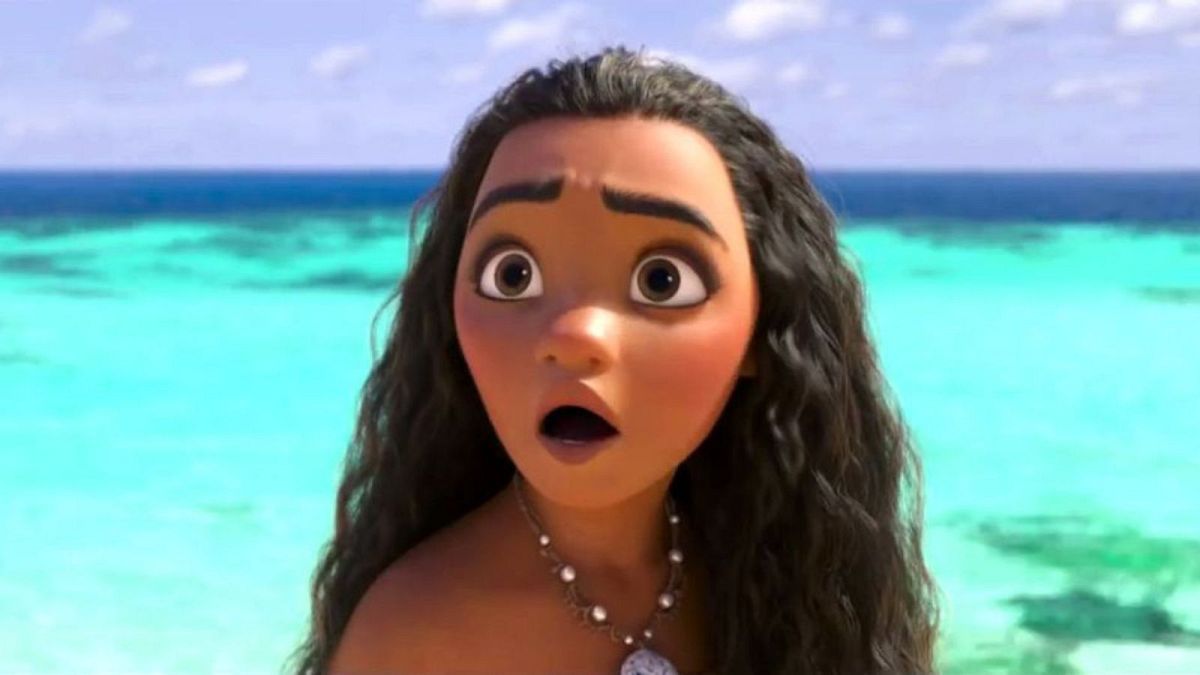Disney has been hit with a copyright lawsuit alleging that the popular Moana franchise was lifted from a decades-old screenplay without the writer’s consent. The writer is now suing for $10billion in a new copyright claim.
An animator is suing Disney for allegedly stealing the idea for the House of Mouse’s Moana films, which he claims have almost entirely been lifted from his screenplay without his consent.
Buck Woodall’s suit alleges Disney stole many elements of his animated film project titled Bucky – a “fraudulent enterprise that encompassed the theft, misappropriation and extensive exploitation of Woodall’s copyrighted materials” on part of former Mandeville Films development director Jenny Marchick.
Woodall alleges he produced a screenplay and trailer for Bucky, which features a main character who encounters a tattooed demigod with a giant hook and a giant creature that’s concealed within a mountain, and began sharing details of said project with Marchick in 2003.
Marchick, who is now DreamWorks Animation’s head of development for features, asked for materials like production plans, character designs and storyboards, and reassured Woodall she could get the film greenlit.
Woodall has accused Marchick of using legal loopholes to pass on his materials to Disney and claims he received copyright protection for his Bucky materials in 2004 – a copyright that was updated in 2014.
“Disney’s Moana was produced in the wake of Woodall’s delivery to the defendants of virtually all constituent parts necessary for its development and production after more than 17 years of inspiration and work on his animated film project,” the suit states.
The suit also points out alleged overlaps between Bucky and Moana 2.
Both are set in an ancient Polynesian village and follow teens who attempt to save their land and meet ancient spirits who manifest as animals. The suit specifically points out details like the rooster and pig companions, a quest to break a curse, as well as a whirlpool that leads to a portal as all being lifted from the screenplay of Bucky.
“Moana and her crew are sucked into a perilous whirlpool-like oceanic portal, another dramatic and unique device-imagery found in plaintiff’s materials that could not possibly have been developed by chance or without malicious intentions.”
Woodall had previously tried to sue Disney over Moana. However, US district judge Consuelo Marshall ruled in November last year that he had tried to sue too late over the 2016 film, according to The Hollywood Reporter.
Now, with the recent release of Moana 2, which has already grossed $989.8m worldwide, Woodwall is taking further legal action and is seeking damages worth 2.5 per cent of the gross revenue of Moana – equivalent to $10bn (€9.7bn).
Additionally, he is seeking an order banning further infringement of his copyrights.
Disney previously claimed that no one involved in Moana’s development had seen the animator’s materials. Moana director Ron Clements wrote a declaration to the court after the first lawsuit, which read: “Moana was not inspired by or based in any way on [Woodall] or his ‘Bucky’ project, which I learned of for the first time after this lawsuit was filed.”
The Hollywood Reporter reported that Disney also submitted documents regarding the origin and development of Moana – including story and pitch materials.
The first Moana film was released in 2016 and was an instant hit. Last month, we reported that eight years after its release, the movie has become the most-streamed movie of the past five years.
Indeed, Moana has been viewed for a total of more than 1 billion hours – which amounts to one person sitting through the movie 775 million times. Or, as The Wall Street Journal put it, “watching Moana for 150,000 years straight”.
Moana 2 has done exceptionally well at the box office, and could be on its way to getting an Oscar nomination next week.
However, the sequel’s awards prospects don’t look too bright, especially since it lost the Golden Globe for Best Animated Feature to Flow – one of our favourite films of 2024. This recent lawsuit could harm film’s chances further, as the Academy may wish to avoid any controversy by nominating it.
Additional sources • Hollywood Reporter

